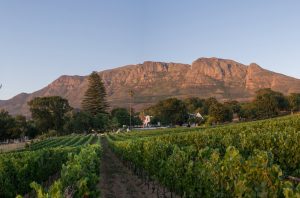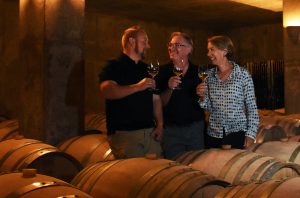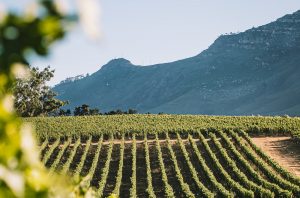At first glance it’s hard to pin down what draws together the participating members in the Premium Independent Wineries of South Africa (PIWOSA). They are, after all, a hugely diverse bunch.
There are wineries with a heritage that goes back centuries and others that have been making and selling wine for less than 20 years. There are estates with hundreds of hectares under vine, and winemakers who take fruit from the same growers every year, but own next to no vineyards themselves. There are statement-making operations with grandiose restaurants and guest rooms, and others that are modern, minimalist, tin-roofed buildings with not much more than coffee-making facilities for the winemaker.
Geographically, too, they span much of the Cape’s winelands: from Constantia and Durbanville Hills, near to the zing and bustle of Cape Town, through the heartlands of Stellenbosch and Paarl, via the cool heights of Elgin and out to Robertson and the Overberg, perched on the very tip of Africa.

Discover more about PIWOSA producers’ social responsibility and sustainability efforts
But spend some time talking to the members and a key thread emerges, as slowly and surely as the first vine shoots of spring: this is a group absolutely dedicated to making great wines, whatever the cost. If that means not releasing a wine one year, or spending considerable time, investment and resources in securing particular barrels or amphorae – even more expensive now, with the weakened Rand – then that’s what they do.
These are wine companies where decisions are made for long-term benefit, rather than short-term gain. Those difficult decisions are easier to make for the PIWOSA wineries, since many are family-run businesses, rather than companies with shareholders or outside investors.

And they tell the world about their mission, too – PIWOSA’s members, chaired by Journey’s End Vineyards’ Rollo Gabb, are heavily export-focused. They spend a lot of time on the road together, presenting their wines and conducting tastings with the drinks press, sommeliers, importers and the wine-drinking public. They have done tastings on trams in Toronto and boats in Dubai; it’s no coincidence that at four of the wineries visited for this report the owner or winemaker was off on their travels.
By showcasing their bottles and telling their story, PIWOSA’s members are promoting not just their own wines, but the whole of the Cape. Fully committed to sustainability in the vineyard and social uplift beyond it (more on both of these later), they are very much standard-bearers for premium South African wine all over the world.

PIWOSA producers – get to know them:
Avondale
Avondale in Paarl has embraced biodynamic farming, transforming its philosophy to focus on respecting the rhythms and needs of nature – encapsulated in its motto, ‘terra est vita’, or ‘soil is life’.
De Grendel
Since planting its first vines in 2000, this family-owned estate outside Cape Town has built a formidable reputation.
The Drift Estate
At the southern end of the Overberg valley, halfway up the southernmost mountain range in South Africa and only a few miles from the ocean, The Drift Estate is producing fantastically varied wines.
Glenelly Estate
Combining Bordeaux heritage with a deep respect for its Stellenbosch terroir, this estate is building for the future.
Jordan Wine Estate
Now in its fourth decade, this family-run now-164ha estate is one of the cape’s most reliably impressive performers.
Journey’s End Vineyards
This internationally-renowned winemaker places a strong emphasis on social uplift in its community, going so far as to organise an annual ‘Trebuchet Day’, on which it flings wine barrels with a 12.8m siege engine, to raise money for local causes.
Ken Forrester Wines
Tilling, pruning and harvesting entirely by hand, with no herbicides or pesticides, this estate has been championing Chenin Blanc for three decades.
Klein Constantia
Dating back to 1685, this internationally-renowned estate is set on the slopes of Constantiaberg, looking out over False Bay.
Paül Cluver Family Wines
This fourth-generation family business has been operating in the Elgin Valley for over 120 years, establishing it as a prime region for Pinot Noir and Chardonnay.
Raats Family Wines
Since 2000, this winery has specialised in only Cabernet Franc and Chenin Blanc, a focus that has been recognised with accolades in both South African and international competitions.
Radford Dale
Established 25 years ago, Radford Dale now has one winery on the Helderberg Mountain in Stellenbosch and a newer, organic-certified estate in cool-climate Elgin.
Springfield Estate
In the rocky, unforgiving terroir of the Robertson Valley, this family-run winery traces its heritage to French Huguenot winemakers who emigrated here from the Loire in the seventeenth century.
Discover more about PIWOSA
Connect on Instagram | Facebook | X




















